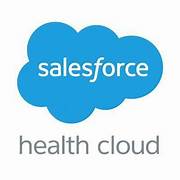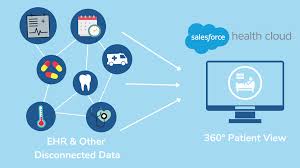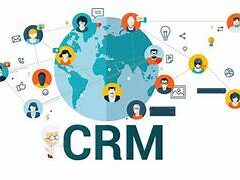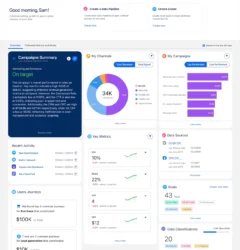Salesforce Health Cloud is a powerful Customer Relationship Management (CRM) platform designed for healthcare, offering a comprehensive 360-degree view of patient data. By consolidating medical records, test results, and insurance details from multiple sources, it bridges the gap between clinical and non-clinical information in real time—empowering providers with actionable insights.
Recent studies highlight the impact of healthcare CRM solutions:
- 25% cost reduction for organizations using CRM tools
- 80% of patients prefer personalized care experiences
With AI-driven predictive analytics and seamless EHR integration, Salesforce Health Cloud is transforming care coordination. By eliminating data silos, streamlining workflows, and boosting patient engagement, it enhances EHR performance, clinical outcomes, and operational efficiency.
In this insight, we explore how Salesforce Health Cloud’s 360-degree CRM view elevates EHR capabilities.
Understanding EHRs and Healthcare CRMs
What Are EHRs?
Electronic Health Records (EHRs) are digital versions of patient charts, providing real-time access to authorized users. Unlike traditional paper records, EHRs enable seamless data sharing across:
- Clinicians & specialists
- Laboratories & imaging facilities
- Pharmacies & emergency care providers
- Schools & workplace clinics
What Are Healthcare CRMs?
Healthcare Customer Relationship Management (CRM) systems focus on patient engagement, care coordination, and experience optimization. Key features include:
- Automated patient communication
- Streamlined intake & registration
- Telehealth & remote monitoring support
How a 360-Degree CRM View Boosts EHR Performance
1. Enhanced Data Integration & Visibility
A 360-degree CRM view unifies clinical, administrative, financial, and patient interaction data into a single platform. This integration:
- Eliminates data silos, turning fragmented EHRs into a connected hub of real-time insights
- Reduces duplicate data entry and errors while enabling personalized care
- Accelerates decision-making with full visibility into a patient’s journey
2. Optimized Operational Efficiency
By integrating CRM data directly into EHRs, healthcare organizations can:
- Automate repetitive tasks (appointment scheduling, billing, follow-ups)
- Reduce administrative burden and improve cross-department coordination
- Minimize delays with centralized, real-time data access
- Boost productivity by letting providers focus on care—not paperwork
3. Personalized Patient Engagement
A holistic CRM view helps providers understand each patient’s:
- Medical history
- Communication preferences
- Behavioral patterns
This enables:
- Tailored treatment plans and health education
- Automated reminders & follow-ups for better adherence
- Stronger patient-provider relationships, leading to higher satisfaction
4. AI-Powered Actionable Insights
Integrating AI and machine learning with a 360-degree CRM view allows:
- Predictive analytics to flag potential health risks
- Optimized treatment pathways based on data trends
- Automation of routine tasks, reducing manual errors
- Smarter clinical decisions with real-time intelligence
Tectonic’s Salesforce Health Cloud Solution
Tectonic delivers customized Salesforce Health Cloud solutions to maximize efficiency, patient outcomes, and workflow optimization. Our expertise includes:
✔ Custom implementation tailored to your organization’s needs
✔ Seamless integration with EHRs, billing systems, and patient engagement tools
✔ Comprehensive training to empower care teams
✔ Ongoing support for updates, performance tuning, and troubleshooting
With Tectonic, unlock the full potential of Salesforce Health Cloud—transforming patient care and operational excellence.
Ready to enhance your EHR performance? Let’s connect!














